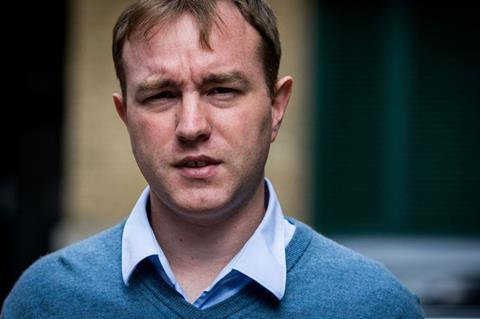
21st Century Justice
1. Civil procedure funnel: The new Online Procedure Rule Committee is bracing for a busy year as it sets out to turn the master of the rolls’ vision of a ‘funnel’ of online dispute resolution services into an accessible and affordable system. Meanwhile, look out in the spring for the Law Society’s white paper setting out ‘practical, affordable changes’ to the civil justice system as part of the Society’s 21st Century Justice project.
In the profession
2. Regulatory switch: Legal executives will find out if their representative body, CILEX, intends to press ahead with plans to transfer regulation from CILEx Regulation to the Solicitors Regulation Authority. If the expected application is made to the Legal Services Board, the oversight regulator will have 90 days to make a decision. However, CILEx Regulation has told CILEX that the representative body does not have the necessary legal authority to switch regulator ‘and stands ready to ask the courts to rule on this issue if necessary’.
3. Axiom Ince inquiry: The Legal Services Board already has plenty on its plate for 2024, including its review of the SRA’s role in respect of last year’s collapse of Axiom Ince. Working alongside Northern Ireland firm, Carson McDowell, the LSB will publish terms of reference this month and should produce a report by the spring. SRA chiefs have pledged to cooperate fully with the review but may come under pressure if the report is critical.
4. Compensation culture: Linked to the Axiom Ince collapse are discussions about the future of the SRA’s compensation fund. The regulator’s immediate priority is how to compensate clients of the firm: the fund has £18m reserves and faces at least £33m in claims. Expect a hike in contributions in the autumn, if not sooner. Wider discussions will also begin about the future of the fund and whether solicitors can continue to pay for full client redress.
5. Happy anniversary? In what is sure to be a challenging year, SRA chief executive Paul Philip is due to celebrate an impressive 10 years at the helm.
Legal aid SOS
6. New year, new expenses: From this week, practitioners acting in the qualified legal representative scheme in domestic abuse cases are able to claim expenses described by the Law Society as still too low. The Ministry of Justice is hoping that £180 for travel, £100 per night for a hotel stay, £21 per night on food and up to £40 per day for other expenses will encourage more lawyers to join the scheme in 2024.
7. Society’s challenge: After hearing oral submissions in the High Court just before Christmas, Lord Justice Singh and Mr Justice Jay will deliver their verdict in the Law Society’s legal challenge to the government’s decision not to uplift solicitors’ fees by the minimum 15% recommended in 2021 by Lord Bellamy’s independent criminal legal aid review.
8. Civil legal aid: A government-commissioned review of how best to improve the long-term sustainability of the civil legal aid sector is expected to report back to the Ministry of Justice by the end of March. Proposals should emerge over the spring, with a consultation to follow. Final policy decisions are likely to emerge late-summer or early in the autumn. Few practitioners expect the review to lead to a flood of cash.
In the courts
9. Who is Satoshi? On 4 February the High Court will begin hearing a consolidated set of cases concerning the claim that Australian-born computer scientist Dr Craig Wright is ‘Satoshi Nakamoto’, the pseudonymous inventor of bitcoin. This will be the climax to several years of litigation involving contested claims of copyright infringement, defamation and breach of fiduciary duty relating to Wright’s activities in the cryptocurrency field. Meanwhile in March, Sam Bankman-Fried, convicted in the US of fraud over the $32bn collapse of the FTX crypto exchange, will learn if he is to serve up to 110 years in prison.
10. Family court transparency: The second phase of the family court’s reporting pilot and transparency order, aimed at bringing more transparency to family court proceedings, begins this month. The phase will see more courts adopt the presumption that accredited journalists and legal bloggers can report on family court cases, subject to anonymity rules. The reporting pilot was launched at the end of January 2023 in Leeds, Cardiff and Carlisle and in November was extended to cases being heard by magistrates. The pilot followed president of the Family Division Sir Andrew McFarlane’s review of transparency.
11. Royal witness: Prince Harry, the Duke of Sussex, will be back in court again giving evidence in his libel claim against the Mail On Sunday. Following Mr Justice Nicklin’s finding that the paper’s honest opinion defence has ‘a real prospect of success’ and his refusal of the royal’s dismissal and strike-out applications, a trial is expected to take place this year. Harry is no stranger to the Royal Courts of Justice: he gave evidence – amid much media frenzy – last year in a case against Mirror Group Newspapers.

In the City
12. Big law casualties: After the pandemic ‘boom’ for commercial firms, the corporate legal market is relatively flat and the economic outlook lacklustre. Some firms signed the wrong property deal at the wrong time, and now have an overheads disadvantage compared with the competition. All are subject to wage inflation, where they in effect ‘pay to play’, shelling out for headcount, including newly qualifieds, that they may not win the work to justify. Investment in the latest legal tech is also a significant demand. Some partners may still seek to draw too much. Something has to give, because the maths cannot add up for everyone. If we are lucky, that ‘failure’ will be managed through merger with a less troubled entity. No one wants another collapse like King & Wood Mallesons (Europe) – but did enough partnerships learn the lessons of that firm’s demise?
13. M&A recovery? Hopes for a revival in the City are based largely on a recovery in mergers and acquisitions activity. According to magic circle firm Allen & Overy’s forecast: ‘Challenging market conditions are driving listed and private managers alike to seek protection in scale, while private firms are also targeting boutiques in hot areas such as private credit as they look to diversify their asset focus.’
14. Libor appeal: City trader Tom Hayes (below) will be in court in March to appeal his conviction for rigging the London Inter-Bank Offered Rate (LIBOR). Hayes’ case was referred to the Court of Appeal last year following a ‘wide-ranging and complex’ review by the Criminal Cases Review Commission. Hayes was convicted of multiple charges of conspiracy to defraud in 2015. He was sentenced to 14 years in prison, later reduced to 11 years. His appeal concerns directions given to the jury which Hayes claims were wrong in law.

In-house scrutiny
15. Not lost in the post: One certainty for 2024 is that the scandal over the Post Office Horizon miscarriage of justice – and the role of lawyers therein – will remain subject to intense scrutiny. The Post Office Inquiry will continue to assess the issue, with the focus turning in the spring and summer to the conduct of the group litigation and handling of compensation schemes. Further hearings are also due on the ongoing issues with disclosure to the inquiry itself. A date for the final report has not been revealed but it is possible that chair Sir Wyn Williams could publish his findings by the end of the year. Some predict that the ramifications for professional conduct and ethics could be profound.
16. Conference confusion: The Solicitors Regulation Authority will hold another major conference for the in-house sector, reflecting the growing visibility and relevance of in-housers to its work. The regulator had provisionally put 14 March in the diary, though this could change after SRA chiefs were told at a Lawyers in Local Government conference that March is a busy time for some council lawyers because of the financial year-end. May is also difficult because of local elections.
Law reform
17. Contempt, cremation and airborne robots: The Law Commission’s 13th programme of law reform will cover an impressively broad range of topics this year. Look out early in the year for proposals on autonomy in aviation and legislation covering disabled children. In the autumn, we can expect proposals on burial, cremation and novel means of disposing of corpses. Meanwhile, a consultation paper on the law of criminal and civil contempt is expected following a request by the Ministry of Justice and the Attorney General’s Office. Codification is expected to be one proposal on the menu. The commission’s final report on Evidence in Sexual Offences Prosecutions is also expected this year.
Costs
18. Damages deductions: The Court of Appeal will hear Hoskin v Northampton General Hospital NHS Trust. This case asks whether receiving parties should provide a breakdown of medical agency fees, with the appeal set to end ongoing uncertainty. If the challenge is unsuccessful, agencies may have to detail the time they have spent and place claimant lawyers under pressure to reduce deductions from client damages.
Technology
'Under appropriate human supervision, several applications of generative AI are likely to become mainstream. Firms have already identified use-cases in document review, compliance and generating first drafts of documents such as case summaries'
19. Legal geeks: It looks like being a hectic year for the government-sponsored LawtechUK programme, with events including a showcase of UK developments in New York. Decisions will also have to be made about the future of the programme, which is scheduled to wind up in April 2025. One possible successor is Professor Richard Susskind’s proposed National Institute for Legal Innovation. After last year’s surge of excitement about ChatGPT, AI is also guaranteed to be a big theme.
Make or break for AI
One certainty for 2024 is that controversy about the role of AI technologies in law will not abate – though after the past year of hype following the release of ChatGPT we can expect talk to be more down to earth.
Under appropriate human supervision, several applications of generative AI are likely to become mainstream. Firms have already identified use-cases in document review, compliance and generating first drafts of documents such as case summaries. More speculative are applications in identifying disputes before they happen: both to avoid them and as the basis for large group claims. Expect more announcements along the lines of magic circle firm Allen & Overy's contract-negotiating tool.
Then there is the spectre of regulation. The European Parliament will vote on the EU’s pioneering AI Act, seen as the world’s first comprehensive set of laws to regulate the use of artificial intelligence. Although its measures would not come into force until 2025, its requirements – for example on data quality, documentation and human oversight of ‘high risk’ systems – will strongly influence implementations.
The US, under President Biden’s executive order last October, is likely to follow suit. Against this background, the future of the UK’s independent ‘pro innovation’ approach must be in doubt – particularly in the event of a change of government.
The need for regulation will also be thrown into sharper focus by the increasing roll-out of AI-powered legal advice services to fill the access to justice gap for individuals and small businesses. Expect a debate over the need to regulate AI professionals as we do doctors – and lawyers. How this will align with a deregulatory agenda remains to be seen.
Group actions
20. Dieselgate: 2024 looks set to be the year of the class action in the courts of England and Wales. 17 January will see the next step in the so-called ‘Dieselgate’ litigation. Following a case management hearing at the end of 2023, Dame Victoria Sharp and three other judges ruled that there would be a three-day consolidated hearing at the start of 2024 to hear all existing group litigation order applications. A GLO is an order made under the Civil Procedure Rules to provide for case management of claims that give rise to common or related issues of fact or law.
21. Dam claim: The first-stage trial in the multi-billion-pound lawsuit against global mining giant BHP over a dam collapse that led to Brazil’s worst environmental disaster is listed for 11 weeks in October. The initial spring date was deemed ‘not feasible’ by Mrs Justice O’Farrell in a judgment last year. The case is one of the largest domestic group actions ever, involving around 732,000 claimants who are all seeking compensation for losses caused by the dam collapse. Mining giant BHP denies the claims in their entirety.
22. Rugby litigation: Nearly 300 rugby union players will find out in the spring if their claims against World Rugby Limited, Welsh Rugby Union Limited and England’s Rugby Football Union are suitable for a group litigation order.

The long-running case is being closely followed by other sports.
23. European Court of Human Rights: A judgment is expected to be handed down this year in the case of a group of six Portuguese young people who took almost every government in the European Union including their own to the European Court of Human Rights. The group of 11 to 24 year olds argued the 31 countries failed to comply with their obligations under Article 2 and 8 by ‘materially contributing to climate change’. It is the ECtHR’s biggest climate change case yet and the judgment will be handed down alongside two other climate cases.
In the wider world

Disappearing act: And finally, November marks the 50th anniversary of the disappearance of Lord Lucan following the murder of his children’s nanny, one of the most high-profile crimes of the 1970s. The anniversary is sure to prompt reminiscences – and no doubt ‘sightings’ of the 90-year-old officially deceased peer in far-flung parts of the world.































1 Reader's comment